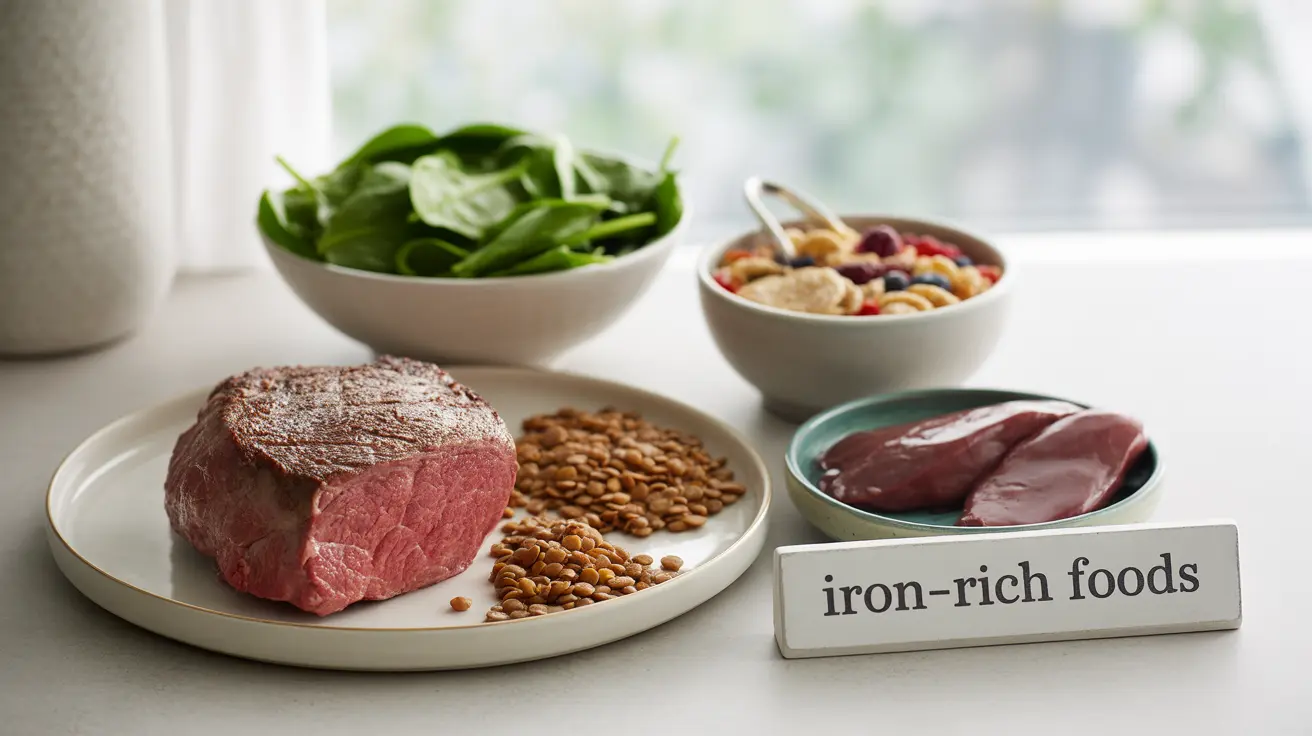Getting enough iron from your diet is crucial for maintaining good health, energy levels, and overall well-being. Whether you follow a plant-based diet or include animal products, understanding the best sources of iron can help you meet your daily nutritional needs and prevent iron deficiency.
This comprehensive guide will explore the most beneficial iron-rich foods, how to optimize iron absorption, and strategies for maintaining healthy iron levels through diet.
Top Animal-Based Iron Sources
Animal-based foods contain heme iron, which is typically more easily absorbed by the body than plant-based sources. Here are some of the most iron-rich animal foods:
- Organ meats (especially liver)
- Lean beef
- Oysters and clams
- Sardines
- Turkey and chicken (dark meat)
- Egg yolks
Plant-Based Iron Sources
Plant-based foods contain non-heme iron, which can still contribute significantly to your iron intake when consumed properly. Top sources include:
- Legumes (lentils, beans, chickpeas)
- Spinach and other dark leafy greens
- Quinoa
- Pumpkin seeds
- Fortified cereals
- Tofu and tempeh
Maximizing Iron Absorption
The way you combine foods can significantly impact iron absorption. Here are essential strategies to enhance iron uptake:
Beneficial Combinations
- Pair iron-rich foods with vitamin C sources
- Include citrus fruits with meals
- Add bell peppers to iron-rich dishes
- Consume leafy greens with citrus dressing
What to Avoid
- Coffee or tea with meals (wait 1-2 hours)
- Large amounts of dairy with iron-rich foods
- Excessive fiber intake during iron-rich meals
Signs of Iron Deficiency
Understanding the symptoms of iron deficiency can help you identify when to adjust your diet. Common signs include:
- Persistent fatigue
- Pale skin
- Shortness of breath
- Weakness
- Cold hands and feet
- Brittle nails
Dietary Strategies for Prevention
Maintaining healthy iron levels through diet requires a strategic approach:
- Plan meals to include iron-rich foods daily
- Combine different iron sources
- Consider meal timing for optimal absorption
- Include vitamin C-rich foods regularly
- Monitor portions of iron-absorption inhibitors
Frequently Asked Questions
What are the best iron rich foods from both animal and plant sources?
The best animal sources include organ meats, lean beef, and oysters, while top plant sources are lentils, spinach, and fortified cereals. Both types can effectively contribute to iron intake when consumed properly.
How can I improve iron absorption from plant-based iron foods?
Combine plant-based iron sources with vitamin C-rich foods, avoid coffee and tea during meals, and space out calcium-rich foods from iron-rich meals by at least two hours.
What are the symptoms of iron deficiency and how can diet help prevent it?
Common symptoms include fatigue, weakness, and pale skin. Prevention through diet involves regular consumption of iron-rich foods, proper food combining for optimal absorption, and maintaining a balanced diet.
Is it better to get iron from food or supplements for boosting iron levels?
Food sources are generally preferred as they provide iron in forms that are better absorbed and come with additional nutrients. However, supplements may be necessary in some cases under medical supervision.
Which iron rich foods are recommended for vegetarians and vegans?
Vegetarians and vegans should focus on legumes, fortified cereals, quinoa, tofu, tempeh, dark leafy greens, and pumpkin seeds. Combining these with vitamin C-rich foods enhances iron absorption significantly.




